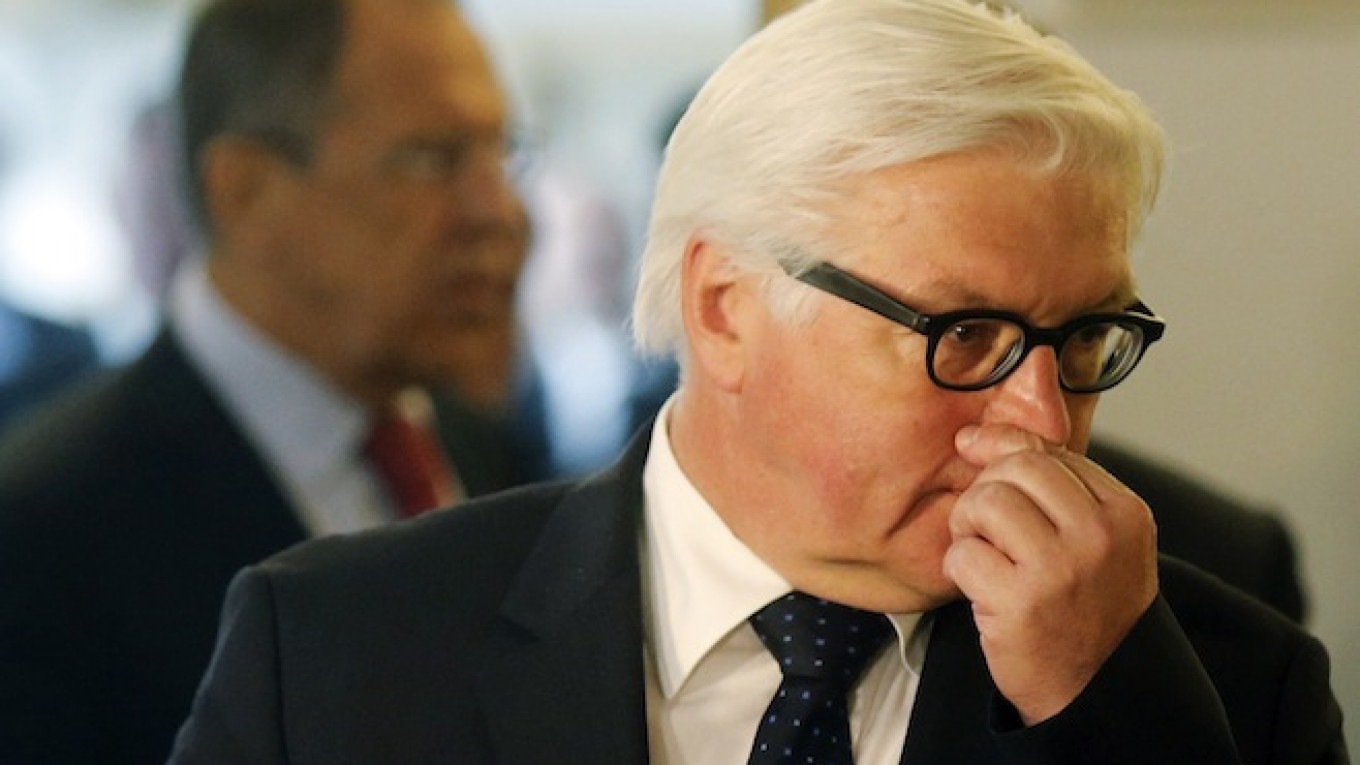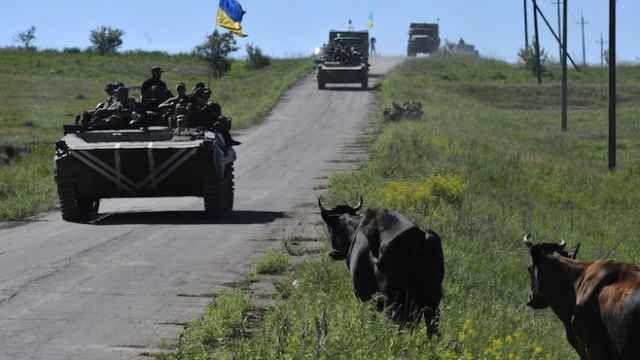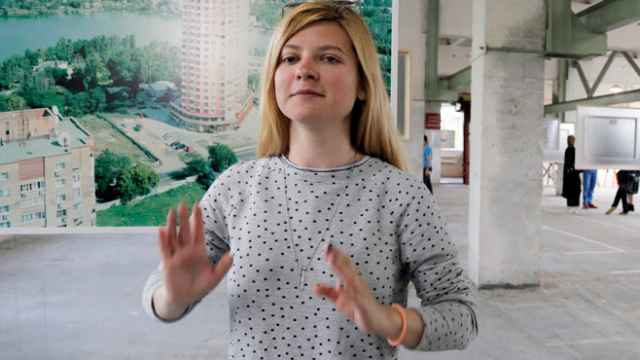The foreign ministers of Russia and Germany spoke on Wednesday and agreed on the importance of ending fighting in eastern Ukraine immediately, Russia's foreign ministry said.
A four-month-old ceasefire brokered by Ukraine, Russia, Germany and France in Minsk has stemmed large-scale fighting but deadly skirmishes still occur almost daily, threatening the possibility of a bigger flare-up.
In their telephone call, Russian Foreign Minister Sergei Lavrov and his German counterpart Frank-Walter Steinmeier, "stressed the importance of an immediate cessation of hostilities in east Ukraine and especially the shelling of villages and civilian infrastructure," Moscow said in a statement.
The Ukrainian military says pro-Russian rebels have increased their attacks along a large stretch of the frontline, killing at least 10 servicemen in the past week.
Military spokesman Andriy Lysenko said violence had lessened in the past 24 hours, but accused rebels of using weapons that were meant to have been withdrawn under the Minsk agreement.
"The situation in the conflict zone has stabilised somewhat. The number of attacks has fallen, but the enemy has not stopped using heavy weapons: artillery and tanks," he said in a briefing.
Separatist commander Eduard Basurin said two rebel fighters had been wounded by shelling from the Ukrainian side, separatist press service DAN reported.
The French foreign ministry said a ministerial meeting between Russia, Ukraine, France and Germany would be held in Paris on June 23.
"They will assess the implementation of the measures agreed in Minsk on Feb. 12," foreign ministry spokesman Romain Nadal said.
On Wednesday, envoys of Ukraine, Russia, the separatists and security watchdog OSCE gathered in Minsk for one of their regular meetings on the progress of the ceasefire.
Rebel representative Denis Pushilin expressed disappointment at the lack of headway in securing real peace and said deep divisions remained in negotiations between Ukraine and the separatists.
A Message from The Moscow Times:
Dear readers,
We are facing unprecedented challenges. Russia's Prosecutor General's Office has designated The Moscow Times as an "undesirable" organization, criminalizing our work and putting our staff at risk of prosecution. This follows our earlier unjust labeling as a "foreign agent."
These actions are direct attempts to silence independent journalism in Russia. The authorities claim our work "discredits the decisions of the Russian leadership." We see things differently: we strive to provide accurate, unbiased reporting on Russia.
We, the journalists of The Moscow Times, refuse to be silenced. But to continue our work, we need your help.
Your support, no matter how small, makes a world of difference. If you can, please support us monthly starting from just $2. It's quick to set up, and every contribution makes a significant impact.
By supporting The Moscow Times, you're defending open, independent journalism in the face of repression. Thank you for standing with us.
Remind me later.






